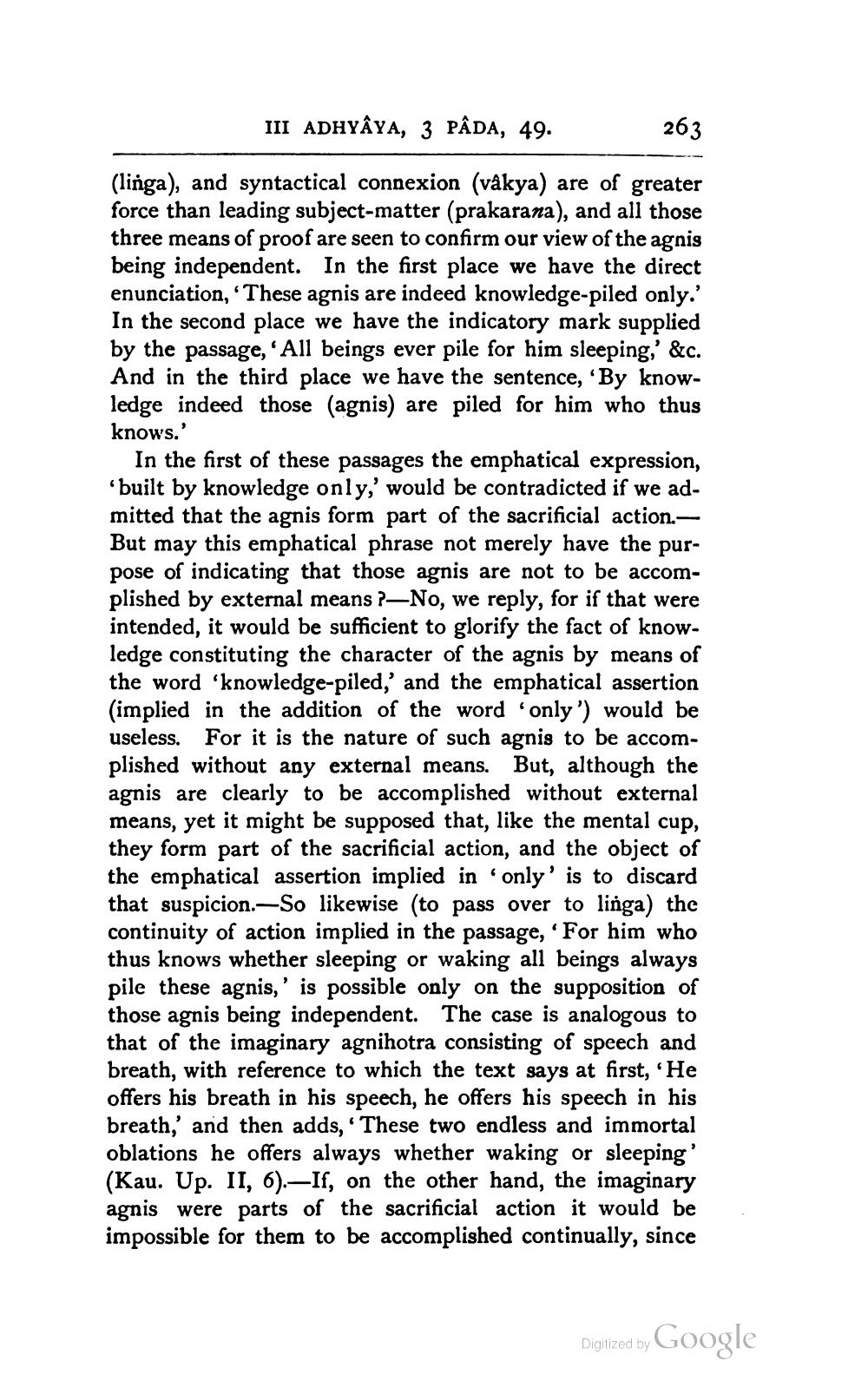________________
III ADHYAYA, 3 PÂDA, 49.
263
(linga), and syntactical connexion (vâkya) are of greater force than leading subject-matter (prakarana), and all those three means of proof are seen to confirm our view of the agnis being independent. In the first place we have the direct enunciation, 'These agnis are indeed knowledge-piled only.' In the second place we have the indicatory mark supplied by the passage, 'All beings ever pile for him sleeping,' &c. And in the third place we have the sentence, ‘By knowledge indeed those (agnis) are piled for him who thus knows.'
In the first of these passages the emphatical expression, 'built by knowledge only,' would be contradicted if we admitted that the agnis form part of the sacrificial actionBut may this emphatical phrase not merely have the purpose of indicating that those agnis are not to be accomplished by external means —No, we reply, for if that were intended, it would be sufficient to glorify the fact of knowledge constituting the character of the agnis by means of the word 'knowledge-piled,' and the emphatical assertion (implied in the addition of the word 'only') would be useless. For it is the nature of such agnis to be accomplished without any external means. But, although the agnis are clearly to be accomplished without external means, yet it might be supposed that, like the mental cup, they form part of the sacrificial action, and the object of the emphatical assertion implied in 'only' is to discard that suspicion.-So likewise (to pass over to linga) the continuity of action implied in the passage, 'For him who thus knows whether sleeping or waking all beings always pile these agnis,' is possible only on the supposition of those agnis being independent. The case is analogous to that of the imaginary agnihotra consisting of speech and breath, with reference to which the text says at first, 'He offers his breath in his speech, he offers his speech in his breath,' and then adds. These two endless and immortal oblations he offers always whether waking or sleeping' (Kau. Up. II, 6).—If, on the other hand, the imaginary agnis were parts of the sacrificial action it would be impossible for them to be accomplished continually, since
Digitized by
Digilzed by Google




